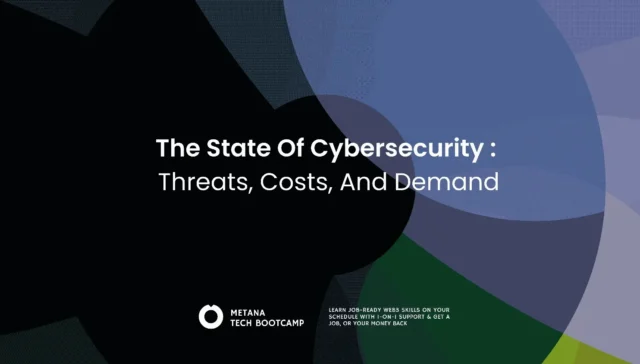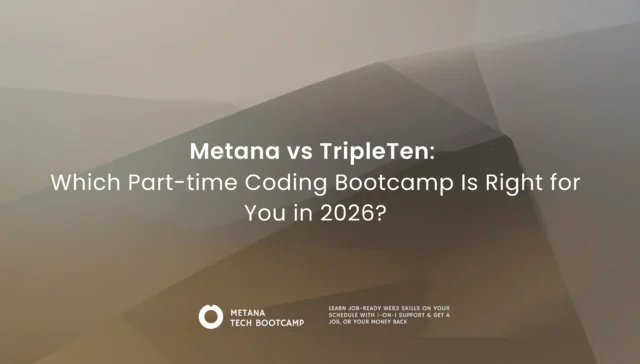TL;DR
Blockchain technology is transforming the fintech industry by providing secure, transparent, and decentralized solutions. It enables faster, low-cost payments, decentralized financial services, smart contracts, and secure digital identities. Fintech companies are leveraging blockchain for efficient cross-border payments, asset tokenization, and regulatory compliance. As blockchain adoption grows, it will revolutionize finance, making it more accessible, secure, and efficient for everyone, including unbanked populations and investors.
Introduction
You’ve probably used fintech without even realizing it, whether it’s sending money through an app, managing your budget with a mobile tool, or investing in stocks online. Fintech is the fusion of finance and technology, transforming how we interact with money. Now, enter blockchain, a decentralized, tamper-proof system for recording transactions. While often linked to cryptocurrencies, its real value lies in enabling trust, transparency, and automation at scale.
Together, blockchain and fintech are not just a trend, they’re rewriting the rules of finance. From faster global payments to decentralized lending, this powerful combination is unlocking new possibilities for financial services, startups, and everyday users alike.
How Blockchain Powers Fintech
Faster, Cheaper Payments
Traditional cross-border transactions can take days and incur high fees. For example; product teams quantifying impact, it’s useful to compare KPIs before and after blockchain adoption—fees, settlement time, or TPS. Quickly calculate percentage increase compute value differences through Canva to communicate gains to stakeholders, then track improvements alongside user growth, LTV, and cost savings.
Further, blockchain enables near-instant transfers at a fraction of the cost by eliminating intermediaries. This empowers fintech apps to offer seamless, real-time global payments without relying on traditional banking rails. Services like RippleNet and Stellar have already proven blockchain’s potential in disrupting remittance and B2B payment industries.
Decentralized Finance (DeFi)
DeFi stands for Decentralized Finance. It refers to financial services, like lending, borrowing, trading, and saving, that run on blockchain networks, without relying on traditional banks or intermediaries. DeFi uses blockchain to offer financial services without centralized institutions. Users can lend, borrow, and trade assets directly using smart contracts. This creates an open, permissionless financial ecosystem, increasing accessibility for the unbanked. Fintech startups are leveraging DeFi protocols to provide borderless savings accounts, lending platforms, and yield farming tools directly from smartphones.
Smart Contracts
Self-executing contracts with terms written directly into code reduce the need for middlemen and improve automation and trust. In fintech, this means automating loan approvals, insurance payouts, and escrow agreements. Smart contracts ensure transparency and accuracy, helping fintech firms cut costs and reduce fraud while speeding up operations.
Secure Digital Identity
Blockchain enables individuals to own and control their digital identities, easing the KYC process and improving data privacy. Fintech platforms can integrate blockchain-based identity solutions to verify users instantly and securely. This not only reduces onboarding friction but also complies with regulatory requirements while minimizing risks of identity theft and data breaches.
Tokenization of Assets
Assets like real estate, art, or stocks can be broken into digital tokens. This increases accessibility and liquidity for investors. Fintech platforms can use tokenization to democratize access to high-value assets, allowing users to invest in fractions of properties or artworks. It also simplifies the secondary market trading of traditionally illiquid assets.

How Fintech Would Be Without Blockchain
Fintech has revolutionized the financial industry by leveraging modern technologies like cloud computing, mobile banking, artificial intelligence, and big data analytics. These innovations have transformed how we make payments, invest, save, and manage financial data. However, despite its rapid advancements, the lack of blockchain technology in fintech presents several limitations that hinder its full potential.
While fintech solutions have significantly increased access to financial services and improved efficiency, they often rely on centralized systems controlled by banks or intermediaries, which can lead to:
- Higher Costs: Traditional financial institutions charge transaction fees, maintenance costs, and foreign exchange fees, which add up for both businesses and consumers. Blockchain can eliminate intermediaries, reducing these costs.
- Limited Transparency: Many financial systems are not fully transparent, with transaction histories hidden in centralized databases. Blockchain’s decentralized and immutable nature ensures that every transaction is traceable and verifiable, enhancing transparency.
- Slower Cross-Border Payments: International transfers through traditional banking systems can take days and involve multiple intermediaries, leading to delays and high fees. Blockchain-enabled fintech solutions like Ripple and Stellar offer real-time cross-border payments at a fraction of the cost.
- Security Concerns: Traditional fintech platforms are vulnerable to hacks, data breaches, and identity theft due to centralized storage of sensitive financial data. Blockchain’s cryptographic features and decentralized structure enhance the security of transactions and user data.
- Lack of Financial Inclusion: Many people in underbanked regions still have limited access to traditional financial services. Blockchain’s decentralized nature, on the other hand, can provide access to financial services via mobile apps, offering loans, insurance, and savings accounts to individuals who previously had no access.
The Future of Blockchain in Fintech
Blockchain technology is evolving rapidly, and its future in the fintech industry holds immense potential. As financial institutions and fintech companies continue to adopt and explore blockchain solutions, it is likely to revolutionize the entire financial ecosystem. Here’s a look at some key developments and trends shaping the future of blockchain in fintech:
- Central Bank Digital Currencies (CBDCs)
Governments are increasingly exploring digital currencies backed by central banks. Blockchain will play a critical role in enabling secure and efficient CBDC transactions, providing a safer and more streamlined alternative to traditional money.
- Mainstreaming of Decentralized Finance (DeFi)
DeFi is set to expand beyond its current scope, providing decentralized financial services like lending, borrowing, and trading without intermediaries. This will increase financial inclusivity, especially for the unbanked.
- Interoperability Between Blockchain Networks
Future blockchain solutions will focus on enabling interoperability between different blockchain platforms, allowing seamless transfers of assets and data. This will create a more integrated financial ecosystem.
- Tokenization of Assets
Tokenization will continue to democratize access to assets like real estate, stocks, and commodities by allowing fractional ownership. This will open up investment opportunities to a wider audience.
- Integration of AI and Blockchain
AI and blockchain will work together to enhance fraud detection, risk management, and trading strategies, creating smarter, more efficient financial systems.
- Privacy and Security
Blockchain’s inherent security features will become even more critical as the need for privacy-preserving solutions increases. Zero-knowledge proofs and other cryptographic methods will ensure user data remains secure while maintaining compliance.
- Regulatory Clarity
As blockchain adoption grows, clearer regulatory frameworks will emerge, creating a more stable environment for blockchain-driven fintech services, encouraging traditional financial institutions to adopt blockchain solutions.
Conclusion
Blockchain and fintech are powerful forces individually, but together, they are reshaping the global financial landscape. While fintech streamlines and digitizes traditional financial services, blockchain adds layers of trust, transparency, and decentralization. From faster payments to decentralized lending and digital identities, the integration of blockchain into fintech is creating a more inclusive and efficient financial system. The future of finance is not just digital, it’s decentralized, democratized, and driven by innovation.
FAQs
Is blockchain only used for cryptocurrencies in fintech?
No. While cryptocurrencies are a popular application, blockchain is used in fintech for payments, identity verification, lending, smart contracts, and more.
How does blockchain improve fintech security?
Blockchain’s decentralized and tamper-proof nature makes it harder for hackers to manipulate data, improving overall security and trust.
Can small fintech startups use blockchain, or is it only for big companies?
Both can use it. Many blockchain platforms offer scalable, affordable solutions that startups can integrate into their apps or services.
Is blockchain technology regulated in fintech?
Regulations vary by country. Many governments are still developing clear guidelines for blockchain use in financial services, but compliance tools are improving.
What are the risks of using blockchain in fintech?
Potential risks include technical complexity, evolving regulations, and scalability challenges. However, with proper implementation, these risks can be managed.
How can users benefit from blockchain in fintech apps?
Users can enjoy faster transactions, lower fees, better transparency, and more control over their data and digital assets.







